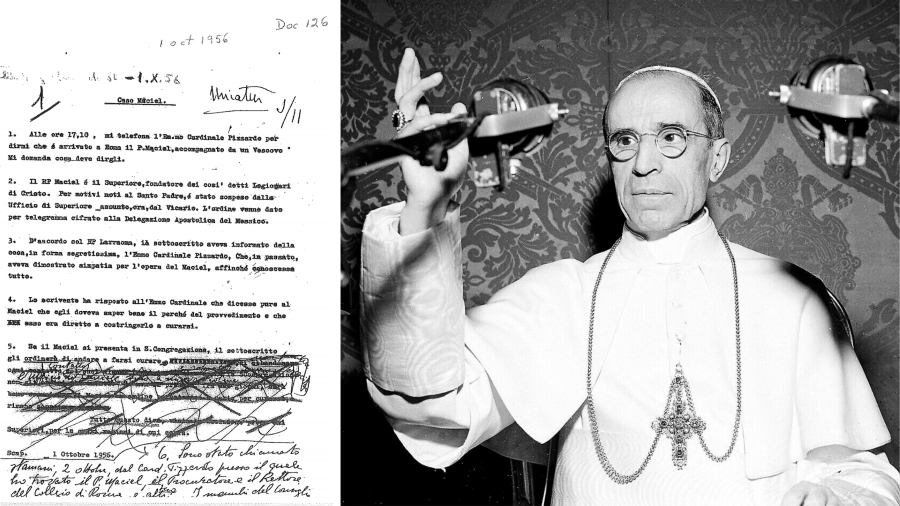Painting: Pietro Perugino, “Polittico di San Pietro (San Benedetto)”, c. 1498
The first step in developing a more obedient and listening heart during Lent is to start being obedient to the things we already know.
Following Jesus in the way of St. Benedict is a time-tested and true way to achieve balance and growth in the spiritual life. The monastic discipline helps us prioritize and direct our efforts to draw closer to Christ, and we don’t have to be Benedictine monks or nuns to learn from St. Benedict.
Benedictine spirituality has six elements, so the six weeks of Lent would seem to be a good time to make a fresh start and bring these six aspects into our lives if possible. The six elements are the three Benedictine vows and the three divisions of daily life. The three vows give us the big picture. The three divisions of daily life give us the day-to-day application.
A Benedictine monk or nun takes the vows of obedience, stability and conversion of life, and the monastic day consists of prayer, study and work.
During the six weeks of Lent I’ll be writing a blog post to be published here and I’ll also be posting it on my special blog for Benedictine spirituality which is called The Suburban Hermit.
The first Benedictine vow is obedience. In our ego centric, individualistic world who can imagine the idea of obedience? After all, the anthem of our time is Frank Sinatra’s “I Did It My Way.” But is obedience really so alien to our way of life? We take it for granted that a measure of obedience is necessary in the workplace. If we belong to a sports team we all expect to ask, “How high?” when the coach says, “Jump.” We obey the law and obey instructions of all kinds. However, when it comes to faith and morals we somehow imagine that it is a free for all and everybody can just do as they please.
They may. We don’t impose. We propose, and there are no Catholic spirituality police. However, to go on the spiritual path without a guide is to get lost quickly and disastrously.
St. Benedict expects a kind of military obedience from his monks. The abbot must be obeyed quickly and without question. This is not obedience for its own sake. The monk learns to be obedient to the abbot so that when the Lord calls him he will also be able to respond with a heart of obedience. Obedience then, is not an end in itself, but a form of spiritual boot camp.
The root word of “obedience” means “to listen”, and listening is at the heart of the Benedictine way. The monk or nun cultivates silence as a way to listen more closely to others and to the Lord.
When we listen closely we soon learn to discern the voice of the Lord and discover his will. Only as we do this will we ever be able to truly follow the Lord and do his will in the world.
Therefore, obedience of the heart takes us close to the Lord. We stop. We look. We listen. Then we act.
Sometimes people will ask me, “What does the Lord want me to do? I would be obedient if I knew what he wanted.”
I reply by asking them if they are already doing what they know he wants them to do. Some things are laid down clearly: follow the Ten Commandments the best you can. Obey the precepts of the Church. Pray every day. Read the Bible. Love the poor.
The first step in developing a more obedient and listening heart during Lent is to start being obedient to the things we already know.







